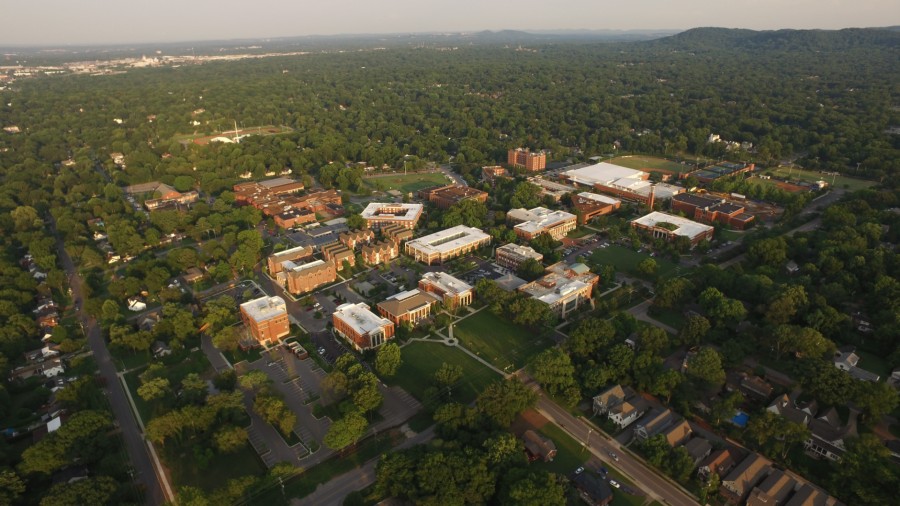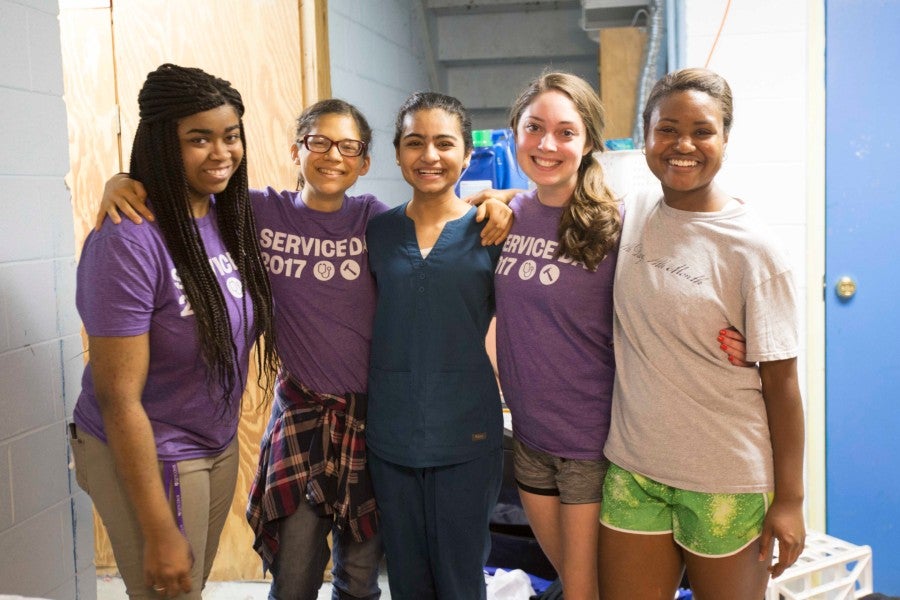Carnegie Foundation names Lipscomb to national list of community-engaged colleges
Lipscomb among just over 350 universities nationwide with the community engagement designation.
Kalli Groce |

This year, Lipscomb University was among 119 U.S. colleges and universities to receive the Carnegie Community Engagement Classification, a Carnegie Foundation for the Advancement of Teaching designation that indicates institutional commitment to community engagement.
Lipscomb’s 2019-20 community engagement includes various opportunities for students to offer volunteer service both on and off campus, several enrichment programs for local K-12 students, international missions programs, an academic program teaching how to use a business as a humanitarian mission and a program for students with intellectual disabilities.
Having held the Carnegie classification since 2010, Lipscomb was up for renewal in 2020 and underwent a process to demonstrate how it is doing even deeper and more significant work in the community than a decade ago, said Christin Shatzer, associate director of general education and director of service learning with the Serving and Learning Together program.
The 119 institutions renewed in 2020 join the 240 institutions that earned the classification during the 2015 selection process, for a total of 359 campuses that are currently active holders of this designation.

“We had to show that the university is making new strides in areas where it is most relevant and appropriate for its community work and partnership efforts,” said Shatzer.
This classification looks beyond the basic demographics and instead offers a comprehensive look at the character and values of the institution and the institution’s efforts in the community.
“The institutions that we are recognizing are doing extraordinary work in addressing their societal responsibilities in and through community engagement and service,” said Paul LeMahieu, senior vice president at the Carnegie Foundation for the Advancement of Teaching. “They inspire us, even as they instruct us how to be our best selves in service to our communities.”
The Lipscomb difference on campus
Lipscomb’s renewal application focused on existing campus-wide activities, including service days and community events on campus.
Lipscomb has made a significant commitment to instilling a service ethic among its students by establishing the SALT program. Through SALT, Lipscomb students volunteer for designated service days to engage in service, work on specific projects linked to SALT courses and conduct service-oriented capstone projects in their fields of study to be designated as SALT Scholars upon graduation.
The program has earned accolades for its promotion of service: named to the 2008 Presidential Honor Roll for Community Service, received a shout-out from U.S. News and World Report as one of the 25 “Programs to Look For” in 2009 and more.
In SALT alone, Shatzer said, Lipscomb students contribute about 20,000 hours of service to the community each year, not including other service efforts. To put that in perspective, the dollar value of a volunteer hour is over $25 per hour nationally.

For the last three years, student leaders were involved in providing a site for Room in the Inn’s winter sheltering efforts. Room in the Inn’s winter shelter program runs from November through March each year. The program provides safe shelter, warm meals and fellowship for neighbors throughout Middle Tennessee struggling with homelessness during the coldest months of the year.
Lipscomb also focused on the local and international work of its Center for Business As Mission, which serves as a hub for the academic study of the BAM concept and connects students to local and global opportunities to engage and apply what is being learned in the classroom. BAM teaches the use of profitable business as a means to create sustainable solutions for the common good of those in need both locally and globally.
Another section of the application focused on community service projects within campus, so Lipscomb pointed to its peer mentors with the IDEAL program. Igniting the Dream of Education and Access at Lipscomb is a two-year certificate program uniquely designed for students with intellectual or developmental disabilities who want to receive the full Lipscomb experience to prepare for the future.
Peer mentors are an essential component of the program. Each IDEAL program candidate has a fellow Lipscomb student who is there to accompany them to meals, chapel services, the gym and other day-to-day activities. Peer mentors help IDEAL students study and organize their course materials, and they walk alongside these students through many aspects of their experience at Lipscomb.
Lipscomb also highlighted the student organization Share Our Supper, which works to minimize campus food waste and increase hunger awareness. With a strong focus on sustainability, the group looks for ways that food can be reclaimed for use in other ways to support nonprofits that are addressing hunger-related issues.

Reaching into the community
The key to Lipscomb’s approach to community engagement is focusing on transformational relationships rather than transactional ones, said Shatzer. The whole process is about finding benefits for both the community and the university in relationships and partnerships. Lipscomb reaches out beyond the campus every day in programs such as mission trips or clinical partnerships between the College of Pharmacy & Health Sciences and local health care providers.
It goes beyond just saying, “We’re doing lots of activity.” Lipscomb’s goal is to undeniably demonstrate its impact on the community, and it offered not one, but several examples of programs that emphasize servant leadership within the community.
In the Greater Nashville and Middle Tennessee area, Lipscomb’s College of Education initiatives include improving youth literacy through its leadership role in the Gaining Early Awareness and Readiness for Undergraduate Programs grant with Metro Nashville Public Schools.
Lipscomb has also created the Lipscomb Initiative for Education program, in which traditional students study and learn alongside residents of the Tennessee Prison for Women. Through this experience, both groups of students have the chance to develop the self-confidence, character, knowledge and compassion to pursue their next steps in life, while serving with others. LIFE students have the opportunity to not only pursue graduate work at the TPW but also to take additional courses on the Lipscomb campus after they are released.
Building on a Good Reputation
In applying for the reclassification, the team included everything from how the university recruits and rewards faculty and has in-faculty teaching and research into community engagement to how it chooses its business and services vendors.
One thing that was new on the 2020 application was a component through which the organization identified 10 to 15 of their exemplary community partnerships. Then a questionnaire was sent to those entities to get feedback on how Lipscomb is a partner and a collaborator in the community around their efforts.
The self-study looks at almost all of the operational elements of the institution and asks how Lipscomb is learning from the community, impacting the community, being a good partner with the community and sharing resources.